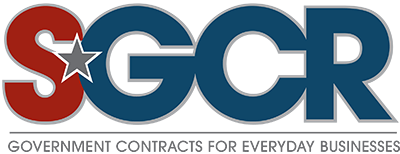Diving into government contracting with SAM requires a clear roadmap to success. SAM.gov stands as a crucial portal for businesses seeking federal contracts. This article delivers a concise guide on effectively using SAM, from completing your registration to enhancing your contracting strategy. Learn the ins and outs of maintaining compliance, crafting a competitive bid, and positioning your business for growth through federal opportunities, all through the lens of SAM’s pivotal role in government procurement.
Key Takeaways
-
SAM.gov registration is essential for government contracting, requiring businesses to provide detailed information and maintain compliance to access government business opportunities and to be considered for contracts.
-
Maintaining an up-to-date and accurate SAM profile is strategic for attracting government agencies, while adherence to compliance and regular reporting is fundamental to eligibility and success in contracting.
-
Advanced tools such as the GSA Schedules program and federal domestic assistance offer additional pathways to federal contracts, and businesses must also ensure compliance with OFCCP regulations and other federal standards to sustain their standing as federal contractors.
Unlocking the System for Award Management (SAM)

The System for Award Management, or SAM.gov, is the official platform where the federal government publishes and manages contracting opportunities. To thrive in federal contracting, having an active registration on SAM is non-negotiable. Not only does it serve as a gateway to numerous business opportunities, but it also acts as a marketing tool for showcasing your capabilities to potential government buyers.
Self Certification on SAM
SAM registration provides businesses the chance to self-certify and demonstrate their qualifications, ensuring they are visible to government agencies and prime contractors seeking reliable partners. Whether you’re a small business trying to break into the market or an established entity looking to expand your federal footprint, understanding and leveraging SAM can be a game-changer.
Understanding SAM Registration
SAM registration is a critical step for any business aiming to engage in federal contracting. This process requires meticulous attention to detail, starting with gathering essential documents related to your business structure and tax ID number. It’s crucial to ensure that your tax ID matches your IRS registration and to provide accurate details such as your legal business name and physical address.
Federal contractors must maintain an accurate and secure SAM registration, which includes obtaining a Commercial and Government Entity (CAGE) code and an Employer Identification Number (EIN) or Taxpayer Identification Number (TIN). Assistance is available through local Procurement Technical Assistance Centers (PTACs), official resources on SAM.gov, and professional guidance services, often at no additional cost. Accurate entity registration is the cornerstone of a successful federal contracting strategy.
Navigating Federal Business Opportunities
Federal business opportunities abound on SAM.gov, offering various avenues for businesses to engage with the federal government. Industry days and special events, listed under ‘Special Notices,’ are particularly valuable as they allow direct interaction with government decision-makers. These events are golden opportunities to network, understand upcoming requirements, and position your business as a credible solution provider.
Engaging in these opportunities can significantly enhance your visibility and credibility with government agencies. By attending these events, businesses can gain insights into government needs and tailor their offerings accordingly, thereby increasing their chances of securing contracts. Navigating SAM.gov effectively is key to uncovering these opportunities and making the most of them.
Entity Reporting and Compliance
Maintaining good standing and eligibility for future contracts hinges on regular entity reporting and compliance. Contractors are required to submit contract data reports, which include financial data, performance metrics, and deliverable statuses. These reports enable the government to track and manage awarded contracts efficiently.
Compliance isn’t just about submitting reports; it involves adhering to federal acquisition regulations and maintaining ethical standards. Regular reporting on subcontracts is particularly crucial under certain federal programs that demand transparency about subcontractor involvement. Failure to comply can result in penalties, including fines or suspension from federal contracting opportunities.
Ensuring ongoing compliance can enhance your reputation and increase your chances of winning future contracts.
Strategies for Winning Federal Contracts via SAM

Winning federal contracts requires a strategic approach that includes crafting a compelling SAM profile, submitting competitive bids, and building strong relationships with government agencies. A well-maintained SAM profile acts like a resume for your business, showcasing your capabilities to potential government buyers. By diversifying your contract portfolio and investing in marketing and compliance management, you can stand out in the competitive federal contracting market.
Proactively engaging with government agencies through SAM.gov can also lead to potential contract awards and long-term relationships. Understanding the federal business opportunities listed on SAM and aligning your offerings with government needs are crucial steps towards securing contracts. Let’s delve deeper into these strategies to see how they can be effectively implemented.
Crafting a Winning Profile
A winning SAM profile should include:
-
Accurate description of your business using descriptive terms that enhance search visibility
-
Professional email address linked to your domain
-
Properly identified North American Industry Classification System (NAICS) codes to match your business activities with relevant government contracting opportunities.
Keeping your SAM profile current is vital. This includes:
-
Updating any changes in your business name, address, ownership, and maintaining small business certifications
-
Compliance, particularly in cybersecurity as mandated by the Department of Defense
-
Transparency
A well-crafted profile not only attracts federal agencies but also instills confidence in your business’s capabilities and reliability.
Bidding and Proposal Submission
Submitting competitive bids and proposals is a critical step in securing federal contracts. These submissions must be comprehensive and adhere to the detailed instructions and requirements laid out in the solicitation. A complete proposal includes:
-
A cover letter
-
An executive summary
-
Technical and management approaches
-
Past performance data
-
Cost schedules
-
Other necessary documentation
Articulating your unique value proposition and demonstrating an understanding of the government’s requirements can significantly enhance the competitiveness of your bid. Ensuring that your submission is compliant with all solicitation guidelines and certifications is essential to avoid disqualification. By clearly outlining how your business meets or exceeds the solicitation requirements, you can stand out among other bidders.
Building Relationships with Federal Agencies
Building strong relationships with federal agencies is a proactive strategy that can lead to contract awards and long-term partnerships. Scheduling meetings with agencies through SAM.gov allows businesses to discuss specific requirements and present tailored solutions before the release of contract solicitations.
Regular follow-up with government representatives met during industry days or through SAM.gov interactions is crucial. Keeping your business in the conversation ensures that you remain top-of-mind when new opportunities arise. These relationships not only help in securing contracts but also provide valuable insights into future government needs and priorities.
The Role of Dynamic Small Business Search (DSBS)

Dynamic Small Business Search (DSBS) is a powerful tool that enhances the visibility of small businesses to federal procurement officers and prime contractors. This searchable database ensures that small businesses can be easily discovered by large prime contractors who are obligated to subcontract with small entities for certain government contracts. By completing their profiles in DSBS, small businesses can increase their chances of being found by agency buyers and prime contractors.
DSBS also facilitates the formation of partnerships and subcontracting opportunities, enabling small businesses to participate more actively in federal contracting. However, leveraging the full capabilities of DSBS requires an understanding of how it complements SAM and a strategic approach to profile optimization.
Enhancing Visibility to Government Officials
Optimizing DSBS profiles with relevant keywords can significantly increase a small business’s visibility to government officials. These profiles are used by procurement officers to identify potential contractors for upcoming opportunities. By ensuring that your DSBS profile is comprehensive and keyword-rich, you can enhance your chances of being selected for federal contracts.
Government contracts awarded to larger businesses often require a small business subcontracting plan. Promoting your business through DSBS can help fulfill these requirements and increase your visibility to government officials. This proactive approach can lead to more contracting opportunities and establish your business as a reliable partner in federal procurement.
Partnering with Other Contractors
DSBS is an invaluable resource for small businesses looking to partner with other contractors. By identifying and connecting with potential partners for joint ventures or teaming arrangements, small businesses can enhance their competitiveness in the federal contracting market.
Assessing and comparing your DSBS profile with those of potential competitors can also help in identifying viable partners for subcontracting. These partnerships can open doors to larger contract opportunities and create a network of reliable collaborators, enhancing your chances of success in federal contracting.
Advanced Tools and Services Beyond SAM

Beyond SAM, there are advanced tools and services that can further aid businesses in securing federal contracts. The General Services Administration (GSA) Schedules program, for instance, offers streamlined access to a wide range of government contracts. Additionally, federal domestic assistance provides grants and other forms of support to businesses engaged in federal contracting.
These tools and services complement SAM by providing additional pathways and resources for businesses to succeed in the federal marketplace. Understanding and leveraging these advanced tools can significantly enhance your federal contracting strategy.
GSA Schedules and Their Impact
The GSA Schedules program provides a streamlined pathway for businesses to access a wide range of government contracts. Known as the Multiple Award Schedule or Federal Supply Schedule, it enables government buyers to procure a vast array of commercial products, services, and solutions at pre-negotiated prices.
Becoming a MAS contractor under the GSA Schedules program offers businesses the opportunity to sell their products and services to the government, ensuring regulatory compliance and cost efficiency. This program is particularly beneficial for small enterprises looking to expand their federal contracting footprint.
Leveraging Federal Domestic Assistance
Federal domestic assistance includes grants and other forms of support designed to aid businesses engaged in federal contracting. These resources can provide the necessary financial backing and guidance to help businesses navigate the complexities of federal procurement.
Understanding the various forms of federal domestic assistance available can help businesses maximize their potential in the federal market. By leveraging these resources, businesses can gain a competitive edge and enhance their chances of securing federal contracts.
Maintaining Compliance as a Federal Contractor

Maintaining compliance as a federal contractor is crucial for long-term success. This involves:
-
Navigating Office of Federal Contract Compliance Programs (OFCCP) regulations
-
Conducting internal audits
-
Adhering to standards set by the Defense Logistics Agency (DLA) and Internal Revenue Service (IRS)
-
Regular internal audits and training for human resources staff to ensure compliance with anti-discrimination and affirmative action regulations.
Collaborating with legal counsel or hiring compliance experts can help federal contractors navigate the regulatory landscape and mitigate legal risks. Some key steps to consider include:
-
Ensuring accurate employment records
-
Adhering to equal employment opportunity practices
-
Regularly reviewing and updating policies and procedures
-
Conducting internal audits to identify and address any potential compliance issues
By taking these steps, federal contractors can increase their chances of passing OFCCP evaluations and maintaining good standing in federal contracting.
Regular Updates and Revalidation
To stay eligible for federal contracts, SAM registration must be revalidated every 12 months. This process typically falls under the responsibility of the E-Business Point of Contact (EB POC) within the organization. It’s essential to verify the accuracy of your D-U-N-S number and Taxpayer Identification Number (TIN) in your SAM profile to avoid application issues.
Providing verifiable and precise information, such as a validated company address through necessary documentation like lease agreements, enhances the legitimacy of your business in SAM.gov. Regular monitoring of the expiration dates of your SAM registration is crucial to ensure timely renewal and maintain continuous eligibility for government contracts.
Handling Audits and Contract Data Reports
Navigating audits and contract data report requirements can be challenging without the right expertise. Consulting with legal counsel experienced in employment law and compliance can help entities ascertain their federal contractor status and ensure transparency in reporting financial arrangements. These experts can guide you through the complexities of federal audits, helping your business maintain compliance and avoid potential penalties.
Accurate and timely submission of contract data reports is essential for maintaining good standing with federal agencies. These reports typically include financial data, performance metrics, and deliverable statuses. Ensuring compliance with these reporting requirements can enhance your reputation and increase your chances of securing future contracts.
Effective Use of Contract Opportunities
Maximizing the benefits of contract opportunities on SAM.gov involves diligent searching, setting up email notifications, and meticulous submission of bids. SAM’s searchable database allows businesses to filter opportunities by multiple criteria, such as agency, contract type, and location. This functionality enables businesses to efficiently track potential contracts and stay updated on new opportunities.
The system also offers comprehensive guidelines on submitting compliant bids that align with federal government requirements. By following these guidelines and tracking your submitted bids through SAM, you can ensure that your proposals meet all necessary standards and increase your chances of winning contracts.
Searching for Opportunities
Searching for opportunities on SAM.gov is a strategic process that involves filtering by criteria such as agency, contract type, and location. The ‘Special Notices’ section provides early alerts of upcoming contracting opportunities, allowing businesses to prepare their proposals in advance. Staying updated on these opportunities can give your business a competitive edge in the federal contracting market.
However, filtering through the high volume of opportunities can be challenging. Businesses must effectively qualify those that align with their offerings while competing against others with access to the same information. Strategic preparation and timely responses to these opportunities are key to success.
The Bid Preparation Process
The bid preparation process requires:
-
A thorough understanding of solicitation requirements
-
Careful cost estimation
-
Compliance with government acquisition regulations
-
Inclusion of all necessary certifications and representations
-
Tailoring the bid to meet the unique aspects and requirements of the specific solicitation.
Submitting bids by the specified deadline and ensuring that all required documents, such as technical and pricing proposals, are included is crucial. A well-prepared bid that clearly articulates your business’s capabilities and meets all compliance requirements can significantly increase your chances of winning a federal contract.
Expert Tips for New Federal Contractors
New federal contractors can benefit from expert tips to navigate the complexities of federal contracting. Ensuring your SAM profile is accurate and complete is the first step, as it is the first point of review by a contracting officer. Understanding that contracting officers are risk-averse and desire credible and reliable contractors can help you tailor your proposals to meet their expectations.
Leveraging bid matching services can help identify the most relevant opportunities for your business. Complying with all federal regulations is crucial to avoid penalties, as non-compliance can lead to suspension or debarment from federal contracting.
Creating Your User Account
Creating a user account on SAM.gov is a straightforward process that requires a professional email address and necessary documents. It’s recommended to use an email address associated with your business’s domain name for a more professional appearance. To be considered for government contracts, businesses must register with SAM and receive a Unique Entity Identifier (UEI), which has replaced the DUNS number.
Following the registration process on SAM.gov involves providing accurate information about your business. Ensuring that all details are correct and up-to-date can facilitate smoother interactions with federal agencies and increase your chances of securing contracts.
Establishing Your Unique Entity Identifier
The Unique Entity Identifier (UEI) is the mandatory identifier for all entities in federal contracting, replacing the DUNS number. Existing entities registered on SAM.gov, whether active or inactive, are automatically assigned a UEI. New entities will obtain their UEI as part of the SAM.gov registration process.
New entities can register for a full account to be eligible for all awards or financial assistance, or they may obtain a UEI for sub-award reporting purposes only. Understanding the importance of the UEI and ensuring proper registration can streamline your entry into federal contracting.
Summary
Mastering government contracting with SAM is a multi-faceted journey that involves understanding the registration process, crafting a compelling profile, and leveraging various tools and strategies to secure federal contracts. By accurately maintaining your SAM profile, submitting comprehensive bids, and building strong relationships with federal agencies, you can significantly enhance your chances of success.
Incorporating advanced tools like GSA Schedules and federal domestic assistance, while ensuring compliance with all regulations, can further bolster your federal contracting efforts. As you navigate this complex landscape, remember that diligence, accuracy, and strategic engagement are key to unlocking the full potential of federal business opportunities.
Frequently Asked Questions
Why is SAM registration essential for federal contracting?
SAM registration is essential for federal contracting because it is required to do business with the U.S. federal government, providing access to federal business opportunities and acting as a marketing tool to showcase your capabilities.
What documents are required for SAM registration?
You will need documents related to your business structure, tax ID number, legal business name, physical address, CAGE code, and EIN or TIN for SAM registration. This will ensure a smooth and successful registration process.
How can small businesses increase their visibility to government officials?
Small businesses can increase their visibility to government officials by optimizing their DSBS profiles with relevant keywords and ensuring they are comprehensive. This will help them stand out to procurement officers and government officials.
What is the role of GSA Schedules in federal contracting?
GSA Schedules provide an efficient way for businesses to access government contracts at pre-negotiated prices, promoting regulatory compliance and cost efficiency.
How often must SAM registration be revalidated?
You should revalidate your SAM registration every 12 months to remain eligible for federal contracts. Keeping your information accurate and current is essential for ongoing eligibility.

